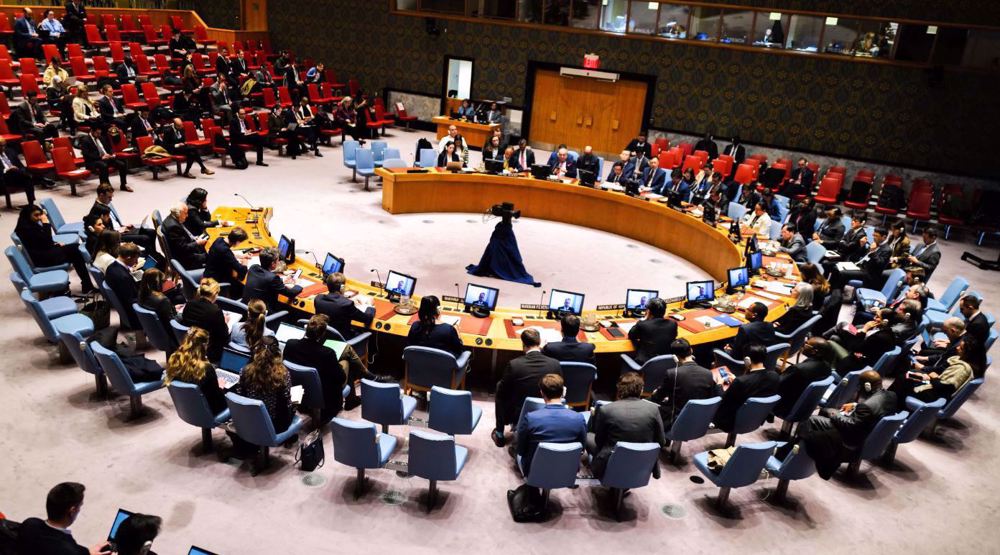Director stresses claim about plot to spread AIDS in Africa
A Danish film director has reiterated accusations leveled in a documentary that a white supremacist group plotted to spread HIV among Black people in several African countries in 1980s and 1990s.
Director Mads Brugger had initially intended to look into the mysterious 1961 plane crash that killed the United Nations (UN)’s then-chief, Dag Hammarskjold, in Zambia for his latest film but ended up uncovering another story.
While working on his film “Cold Case: Hammarskjold,” Brugger ran into Alexander Jones, a former member of a clandestine paramilitary organization with alleged ties to South Africa’s apartheid regime.
Jones told the Danish director that the group conducted an HIV research study in the 1980s and 1990s as part of a white supremacist plot to devastate black communities with the virus.
“We were at war,” Jones tells Brugger in the documentary. “Black people in South Africa were the enemy.”
Brugger said his team tracked down medical clinics run by the group’s now-dead leader, Keith Maxwell, in South Africa, finding evidence purportedly verifying possible human medical experimentation and phony vaccines.
According to the filmmaker, Maxwell claimed to be seeking a cure for AIDS but had no medical training. He also spoke openly of his fascination for biological weapons. Maxwell had been seen by a witness to personally inject black patients with supposed vaccines.
At one point, Jones describes a white philanthropist proposing to open clinics and treating black patients as a “wolf in sheep’s clothing.”
“What easier way to get a guinea pig than (when) you live in an apartheid system?” Jones says in the film. “Black people have got no rights, they need medical treatment. There’s a white ‘philanthropist’ coming in and saying, ‘You know, I’ll open up these clinics and I’ll treat you.”
Brugger told AFP on Thursday that “strategy papers” belonging to Maxwell fit “hand in glove” with Jones’s claims about the plot.
“What Maxwell was writing about, planning for... in itself constitutes a crime,” Brugger said.
After the film’s January premiere at the Sundance Film Festival, some critics denounced the allegations leveled by Brugger as irresponsible and medically dubious.
The Danish filmmaker, however, won a top directing prize for the documentary.

A report by the New York Times suggested that Jones initially dismissed existence of an HIV research project and only professed knowledge of it on camera after being fed information by filmmakers.
Brugger admitted to AFP that there “could have been examples of cross-contamination” because his team spent so much time with Jones.
“But I know for sure that the essential part of what he tells us is not something we fed him,” Brugger said, adding that it is typical for whistle-blowers to “open up and tell you more as time progresses.”
The Danish filmmaker also told AFP he “thought hard and long” about the damage the vaccine claims could do but stressed that “what Alexander Jones tells us needs to be published.”
“If the response to this is that we are invigorating or revitalizing conspiracy theories, I think that is in some sense absurd,” he said.
South Africa has extremely high HIV infection rates and a history of dangerous misinformation about its spread.
Iraqi resistance forces hit Israeli Ovda air base
Hackers break into Israeli military’s computers, access trove of documents
Tulkarm Brigade commander killed by Israeli forces in raid on refugee camp
Zionist media desperately trying to turn Israeli defeat into victory: Iran
VIDEO | Press TV's news headlines
Iran censures US veto of Palestinian request for full UN membership
Over 14,000 kids killed in Israel’s war on Gaza: UNICEF
VIDEO | Iran’s National Army Day marked at the Iranian embassy in Moscow










 This makes it easy to access the Press TV website
This makes it easy to access the Press TV website